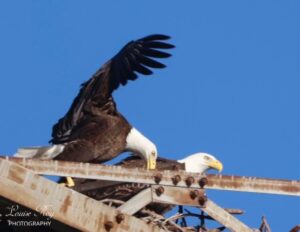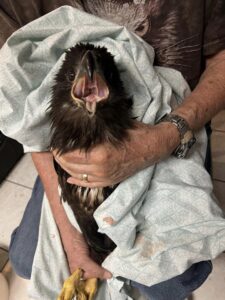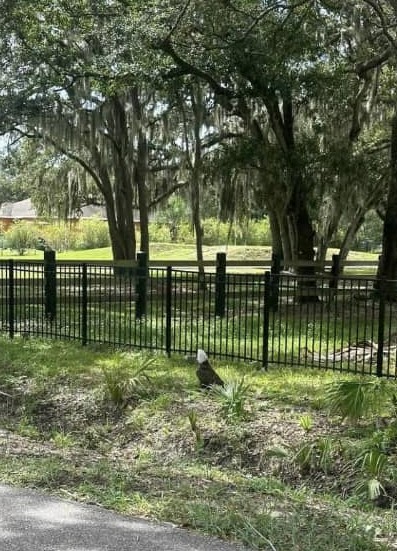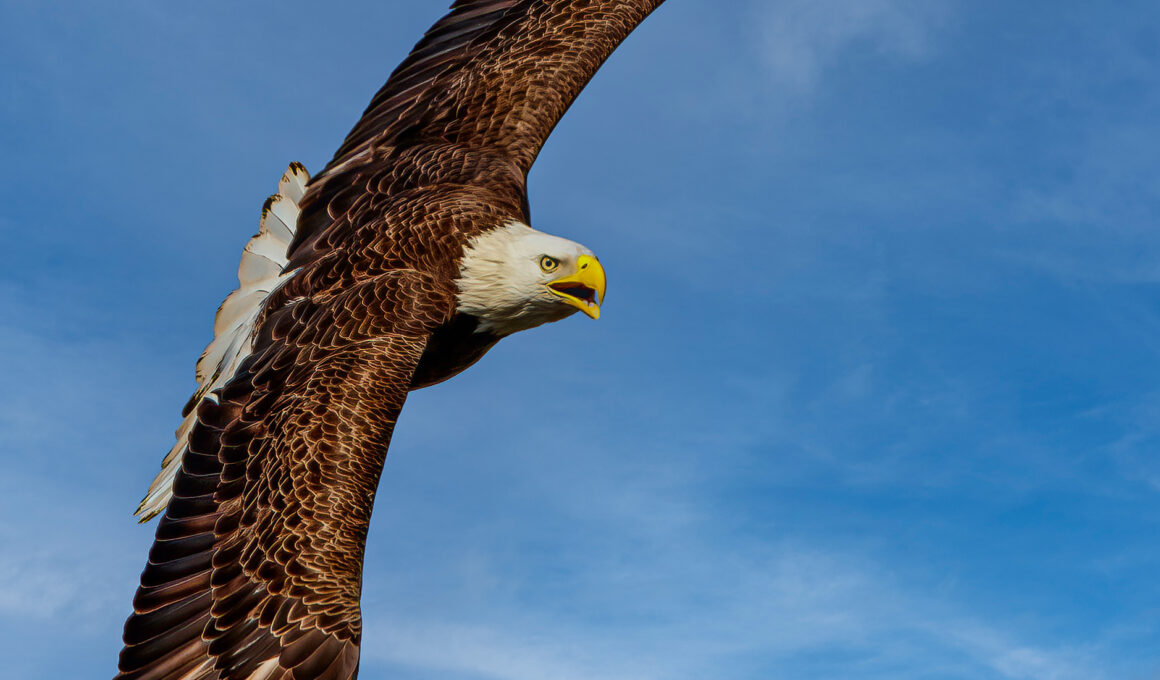
Birders across Tampa Bay are already gearing up for bald eagle nesting season in Florida, which officially kicked off on Oct. 1. Highlighting the need for “eyes on the ground,” a fight that day between two eagles in Gibsonton ended up with one bird seriously injured.
“Eagles are very territorial birds, and this is the time of year that they’re preparing to nest,” said Nancy Murrah, president of the Tampa Bay Raptor Center. “They’ll fight for their territory – or fight to take over a territory if they’re a new bird. If you see a bald eagle on the ground, please call me immediately at 813-205-1851.”
An introductory event planned for Oct. 15 from 1 to 4 p.m. at Moccasin Lake Nature Park in Clearwater brings multiple organizations together to share information on the history of bald eagles in Florida, the drama of the nesting season, and the need for citizen scientists to participate in Audubon’s Eagle Watch program.
Eagle populations in Florida have dramatically rebounded since the 1970s and the iconic birds are no longer listed as endangered, but they still face challenges in Florida, particularly in urbanized areas like the Tampa Bay region. “Across the state, about 20% of eagle nests are in artificial structures (often cell phone towers), but that number is about 90% in Pinellas and 75% in Hillsborough,” said Cheryl Merz, who coordinates Eagle Watch volunteers in Hillsborough County.

Nests in cell phone towers or other artificial structures pose significant issues for the birds, Murrah said. If birds fall out of the nest before they can fly, there are no branches to slow their descent – and they may land on a hard concrete slab instead of a natural, softer surface. Human activity can also interfere with their nesting behavior, like the fireworks display at BayCare Ballpark that was canceled last year after protests from eagle advocates, including Louise Roy, who coordinates Eagle Watch volunteers in Pinellas County.
Most eagles return to the same nest year after year, so volunteers tend to become very attached to “their” eagles, said Roy, who had been observing chicks at BayCare Ballpark nearly every day since April. Closer to home, she watches the eagle pair, “Major and Margie,” and supports volunteers who watch nearly 50 nests in Pinellas. “Most of us fall in love with ‘our’ eagles,” she said. “We come back year after year to watch them.”
Eagle Watch citizen scientists commit to watching their nests for at least 20 minutes twice a month and then reporting their findings to Audubon’s Eagle Watch, which compiles information on hundreds of nests across the state.

In Hillsborough County, Merz is hoping to find additional volunteers to watch nests in the southeast part of the county, where nests tend to be more spread out than in Tampa or the northwest sector. “We have two volunteers watching 15 nests that are pretty spread apart in Sun City Center, Wimauma, Ruskin, Gibsonton, Apollo Beach and Lithia.”
To get a close-up view of the nest, volunteers will need a spotting scope, which is like a small telescope that zooms in much closer than binoculars, so they can clearly see the action in the nest, particularly as fledglings grow older and can be seen over the edge of the nest. “You can get a good scope for about $100 to $300, and we’ll teach you how to use it,” Merz said.
Most volunteers tend to be retirees, but participating in Eagle Watch is also a perfect activity for families, Merz adds. “We expect 20 minutes twice a month, but there’s no set time, so you can go whenever you want. If you take your kids, you can watch the eagles and then have a picnic.”
To make reservations for the Oct. 15 event, text Murrah at 813-205-1851. To learn more about Eagle Watch visit https://cbop.audubon.org/conservation/about-eaglewatch-program.
